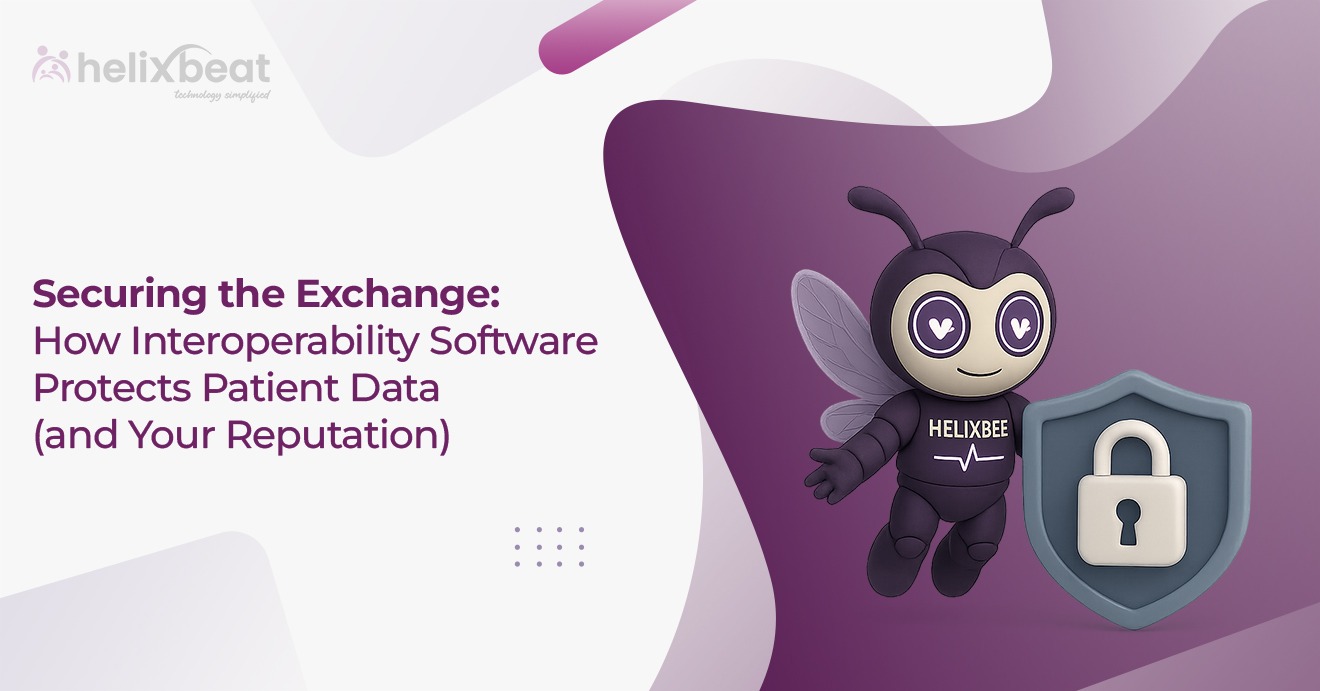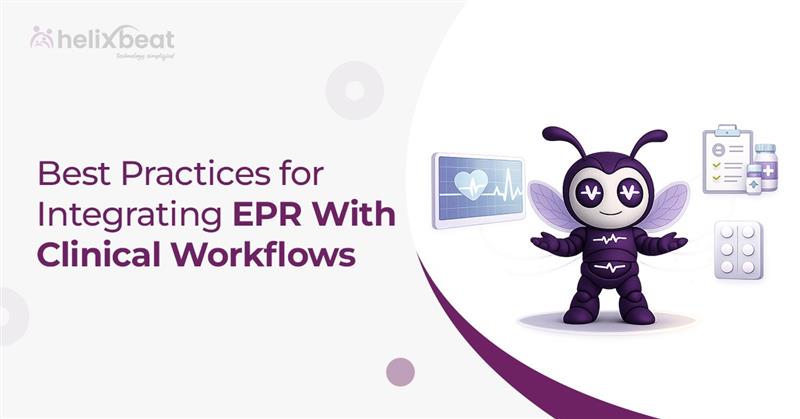As digital transformation continues to reshape the healthcare industry, patient data security and the smooth exchange of information have become more important than ever. At the heart of this transformation lies healthcare interoperability software, a tool that enables seamless and secure data sharing between healthcare providers, insurers, and other stakeholders. However, with the growing complexity of healthcare systems, data must transfer seamlessly between platforms, remain secure, and comply with all relevant regulations.
In this blog, we’ll explore how healthcare interoperability software AERIS helps safeguard patient data, maintain compliance, and protect your organization’s reputation.

Table of Contents
The Growing Need for Secure Data Exchange
The healthcare sector is witnessing an explosion of data from various sources—electronic health records (EHRs), telemedicine platforms, wearables, and patient portals, to name a few. With the increasing digitization of healthcare, there are more opportunities for data to be shared between different systems, organizations, and locations.
However, with this increased data exchange comes a higher risk of cyber threats and data breaches. A 2020 report from the U.S. Department of Health and Human Services revealed that healthcare organizations experienced a staggering 599 data breaches in 2020 alone.
This underscores the importance of securing data exchange processes. However, healthcare interoperability software protects sensitive patient information from falling into the wrong hands while still facilitating efficient data exchange between systems.
How Healthcare Interoperability Software Works
Healthcare interoperability software enables different healthcare systems to communicate with each other. By standardizing data formats, protocols, and APIs, it allows information to transmit smoothly across platforms.
However, interoperability is not just about communication—it’s also about security. Therefore, a healthcare interoperability software like AERIS protects patient data by:
- Data Encryption: AERIS safeguards sensitive information, scrambling it during transmission to keep it unreadable even if intercepted.
- Access Control: AERIS handles user authentication and data access permissions, so sensitive patient information is only viewable or alterable by authorized personnel.
- Audit Trails: Comprehensive logging systems track every action taken on patient data, from access to modifications, making it easier to identify potential breaches or unauthorized actions.
- Compliance with Standards: AERIS meets healthcare-specific regulations, including the Health Insurance Portability and Accountability Act (HIPAA), which establishes stringent standards for protecting patient information.
The Role of Interoperability in Protecting Patient Data
1. Minimizing Human Error
One of the most common causes of data breaches in healthcare is human error. Miscommunication between staff, accidentally sharing data, or misplacing physical documents can result in leaks of sensitive information. Healthcare interoperability software AERIS mitigates these risks by streamlining the process for sharing and accessing data. The software pulls data from the correct source, shapes it into the right format, and shows it only to those who receive it.
2. Strengthening Compliance
Compliance is a critical concern for healthcare providers worldwide. Laws such as HIPAA in the U.S. and other local regulations worldwide mandate the secure storage and transmission of healthcare data.
Healthcare interoperability software AERIS helps organizations stay compliant by:
- Upholding encryption standards in data transmission.
- Auditing all data exchanges to prevent any regulatory violations.
- Helping organizations document their data handling processes to demonstrate compliance during audits.
A healthcare provider that fails to comply with data protection regulations risks heavy fines, legal battles, and irreparable damage to its reputation.
3. Protecting Against Cyber Threats
The healthcare sector is a prime target for cyberattacks due to the highly sensitive nature of its data. Hackers can use compromised healthcare data for a variety of illicit purposes, including identity theft, insurance fraud, and even blackmail.
Healthcare interoperability software AERIS addresses these risks by utilizing advanced security measures, such as:
- Role-based access allows only authorized personnel to view or modify sensitive data.
- Secure APIs prevent unauthorized access to connected systems.
By acting as a security layer, the software not only protects the data but also prevents unauthorized entities from infiltrating the system.
How Reputation Is Tied to Data Security
In healthcare, reputation is everything. A single data breach can damage patient trust for years to come. Besides, patient trust is critical for healthcare organizations because it directly impacts retention, referrals, and overall success. When patients know that their data is handled securely, they are more likely to return for future care, recommend the provider to others, and leave positive reviews.
Using healthcare interoperability software like AERIS to protect patient data is not just about compliance and avoiding penalties; it is about cultivating and maintaining a reputation built on trust, care, and security.
Final Thoughts
As healthcare becomes more digital, the need to safeguard patient data and maintain trust grows increasingly important. Healthcare interoperability software like AERIS is the cornerstone of this effort, offering the tools needed to secure data exchanges, comply with regulations, and protect against cyber threats.
After all, protecting patient data isn’t just about avoiding legal trouble—it’s about building trust, improving patient care, and laying the foundation for a secure and efficient healthcare future.
Looking to enhance your healthcare interoperability and data security? AERIS offers seamless, secure, and compliant interoperability for your systems. Contact us today to discover how AERIS can securely exchange your data while maintaining your reputation.
FAQs
1. How does healthcare interoperability software improve patient care?
By facilitating real-time data sharing across different healthcare platforms, AERIS helps providers access up-to-date patient information, leading to more accurate diagnoses and better care decisions.
2. How does healthcare interoperability software protect patient data?
AERIS uses encryption, access controls, and audit trails to safeguard patient data while it’s being exchanged between different systems and platforms, preventing unauthorized access or data breaches.
3. What types of systems can healthcare interoperability software integrate with?
AERIS can integrate with various systems, such as Electronic Health Records (EHRs), laboratory information systems (LIS), billing systems, and pharmacy systems, among others.
4. What challenges does healthcare interoperability software address?
AERIS addresses challenges like fragmented data, delayed information exchange, and communication gaps between healthcare providers, enabling a more connected and efficient healthcare ecosystem.
5. How does healthcare interoperability software impact patient trust?
By improving the security and efficiency of data exchange, healthcare interoperability software AERIS helps maintain patient privacy and enhances trust in healthcare providers and systems.













